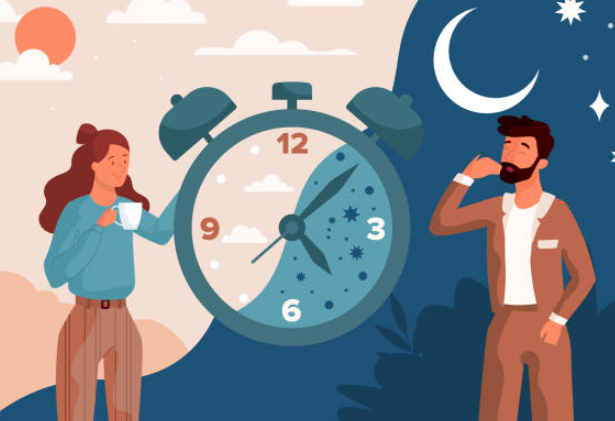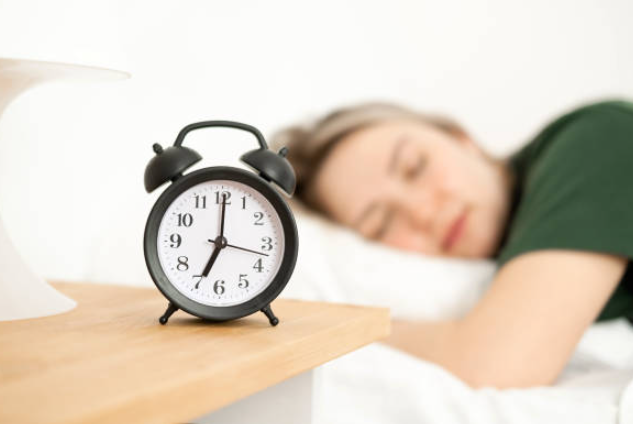How often do you check what time it is? Mobile phones, watches, and clocks throughout the house help guide our daily lives. They tell us when it’s time to get up, when it’s time to go to bed, whether our favorite show is about to be broadcast on TV, or if it’s time to meet our boss. Just as we rely on clocks to perform different tasks, our bodies also have their own internal clocks called circadian rhythms.

Circadian rhythms are sleep-wake cycles that occur in the body over a 24-hour period. In other words, it has to do with when to sleep and when to wake up. Many different factors can affect circadian rhythms. Sometimes, dysfunction also occurs, and when this happens, health can be negatively affected.
What Is Circadian Rhythm and Its Influencing Factors?
Do you know why you are very alert and energetic at certain times of the day and sleepy and tired at other times? This is part of the circadian rhythm. As the body’s internal clock, it communicates with the brain when to wake up and when to fall asleep.
The main way our circadian rhythm knows when to wake up and when to sleep is based on how light or dark the sky is. The sun is an external signal that it’s time to get up, while darkness indicates it’s time to lose power. Of course, the sun is not our only form of light. Now your room is most likely lit by a light bulb, or you are reading this article through the glow of your phone or computer. Exterior lights can affect circadian rhythms by reducing melatonin, a hormone that plays a role in the sleep-wake cycle. This reduction can lead to difficulty sleeping.
Feeling stressed can also affect circadian rhythms. This is because, like melatonin, cortisol, the body’s primary stress hormone, plays a role in the body’s sleep-wake cycle. When we first fall asleep, cortisol levels are low and peak before we wake up. Stress can cause cortisol levels to remain high. This affects the quality of our sleep (or more accurately, how poor it is).

There are other factors that can also affect circadian rhythms: body temperature, travel, shift work, hormones, exercise, aging, and certain medications.
What Happens When Circadian Rhythms Are Disrupted?
Circadian rhythm disorders can lead to a range of health problems. The most obvious is feeling tired but unable to sleep. Other changes may include negative effects on mood, digestive problems, memory and concentration problems, an increased risk of autoimmune diseases, an increased likelihood of getting sick, and an increased risk of certain diseases and cancers. There is also a link between circadian rhythm disturbances and obesity, diabetes, and cardiovascular problems.
Shift workers are particularly at risk of circadian rhythm disruption because they sleep during the day and wake up at night — the exact opposite of what the circadian rhythm tells the body to do. Therefore, it is not surprising that shift workers are more likely to experience all of the above health problems. If you’re a shift worker who has to work at night, trying to use blackout curtains to “trick” your body into thinking that you want to sleep during the day is at night, avoiding bright lights along the way, which may help you go home after your shift and follow a consistent sleep-wake schedule.
As mentioned earlier, artificial light can also cause circadian rhythm disturbances. That’s why sleep experts often preach the importance of “power outages” at night, putting away screens and dimming lights when transitioning to bedtime.
The importance of circadian rhythms cannot be overlooked. Fighting this can negatively affect health in a number of ways. This can range from frustratingly minor problems, such as poor concentration or feeling tired all the time, to increased life-threatening risks.
You may not think that having good sleep and good sleep habits is so important, but it is. Rise and set with the sun as best you can, it’s good for your whole body. It turns out that our internal clock is just as useful as all our external clocks.
